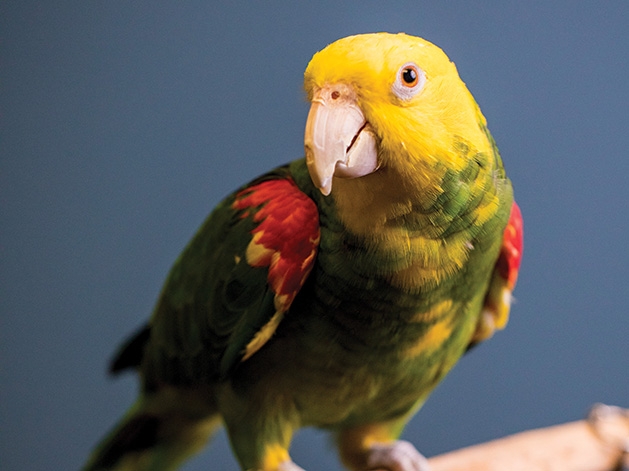
Wendy Stevens is president of Plymouth-based parrothelp.com, which launched in 2010. Its mission is “to help educate the public and offer support to the owners of these beautiful creatures in hopes that with our help, these birds may remain in their home and experience a rich healthy and fulfilling life.” The organization also does surrender and adoption.
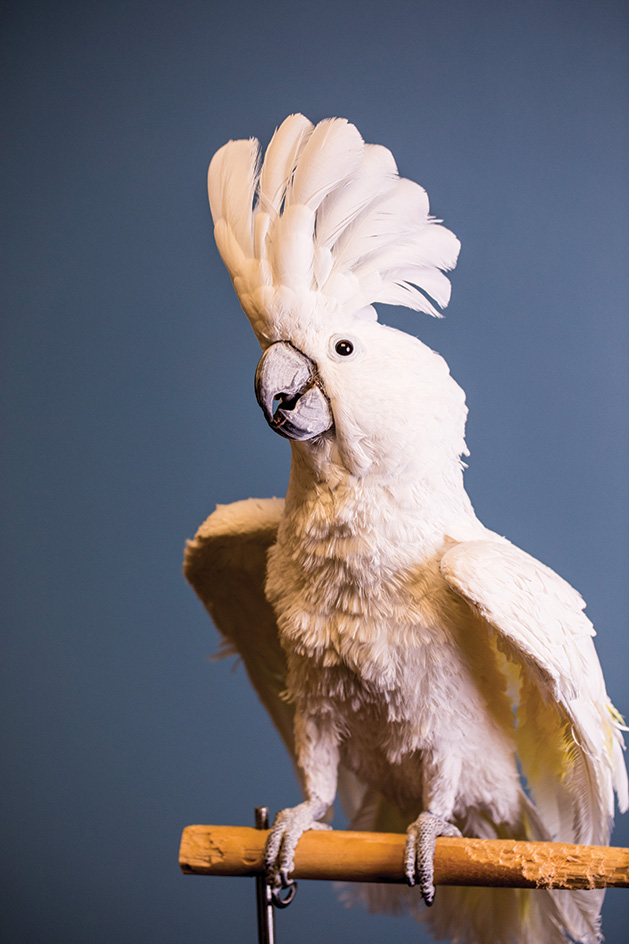
Why parrots?
WS: I volunteered for another parrot rescue. There are a tremendous amount of parrots needing new homes. Parrots are incredibly smart. It’s frequently said they have the temperament of a 2-year-old with the intelligence of a 5- or 6-year-old. Having a parrot is like living with a perpetual toddler.
What help is offered?
[We help] psittacines (parrots) mostly, but occasionally [we] take in passerines, doves and pigeons. We recently took in a red-legged partridge. We are a foster-based, all-volunteer nonprofit and do not have public hours. In addition to adoption, we help current owners with behavior issues, and we do programs at schools and nursing homes. We also take birds to vet tech schools for hands-on experience.
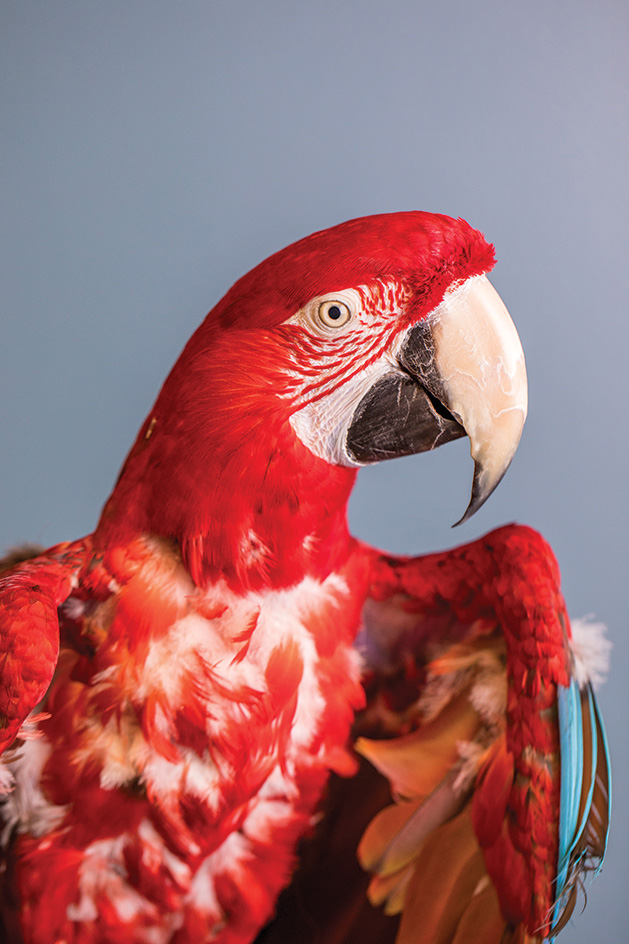
What do parrots need to be happy and healthy?
In addition to toys and socialization, they require a high-quality pelleted diet, along with vegetables, some fruit and nuts.
Why do parrots come into your care?
Because they live so long, they frequently outlive their owners. Other reasons for surrender are a new baby, allergies, retiring, aggression and biting, and the bird being jealous of a new boyfriend, girlfriend or spouse … Small parrots can live 25 years, large parrots up to 80 years. People buy these wonderful creatures not realizing how time consuming they can be. They are wild animals, not domesticated. They are loud, messy and destructive. They need a constant supply of wood to chew, foraging toys [and] perches. They will eat your wood trim, or furniture or cabinets if left unattended.
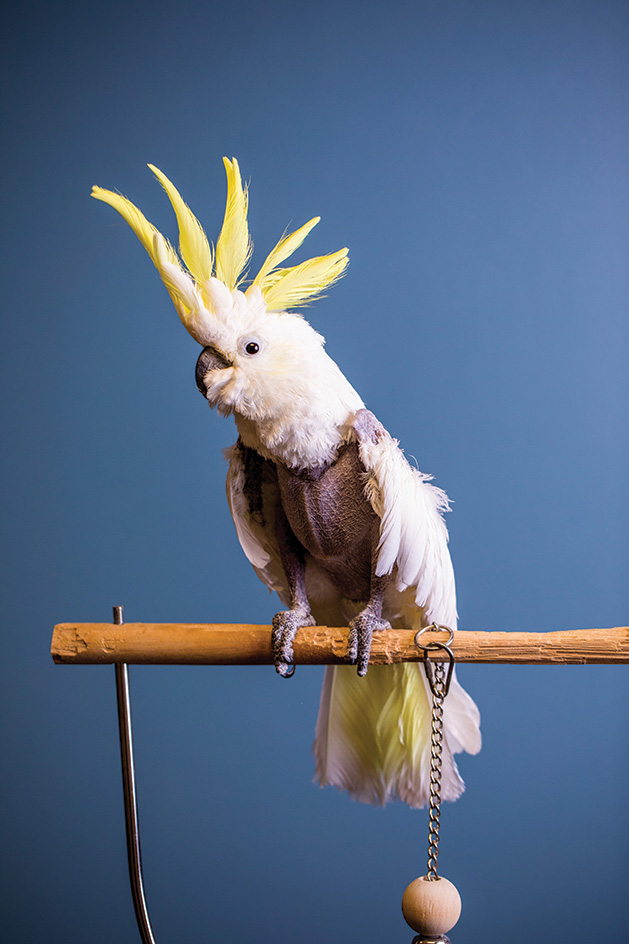
How many parrots are generally in foster care?
It varies greatly. [At the time of the interview, there were about 25 in care.] We also offer direct placement, where the bird continues to live with its family while we look for a home. This works well for a lot of people that need to rehome but don’t want to advertise and interview people themselves. This also helps keep our [foster families] from being overwhelmed.
What makes a good foster home?
We are looking for people that love animals. We don’t require previous parrot experience, but it’s a plus. We also need homes willing to work with aggressive behaviors.
Why adopt a parrot?
Parrots can make wonderful companions. They are smart, funny and social.
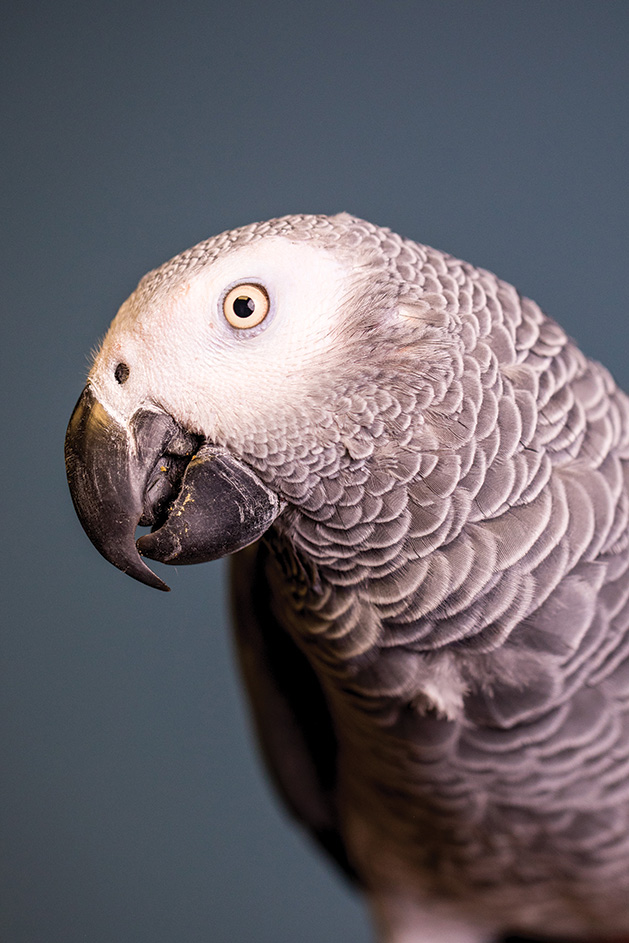
What should one consider before getting a parrot?
Parrots can be highly destructive, extremely loud and bite. They require time out of their cage and like to be with their family. Cages take up a lot of real estate, as do play stands, trees and hanging play areas … People often ask, “Does it talk?” Some do, some don’t.
How else can people help?
Toys, perches and food are always needed. Toys can be purchased or hand made. Cash is always welcome … We can always use people willing to help with transport of donated cages and transport of parrots.
parrothelp.com
612.208.2203









